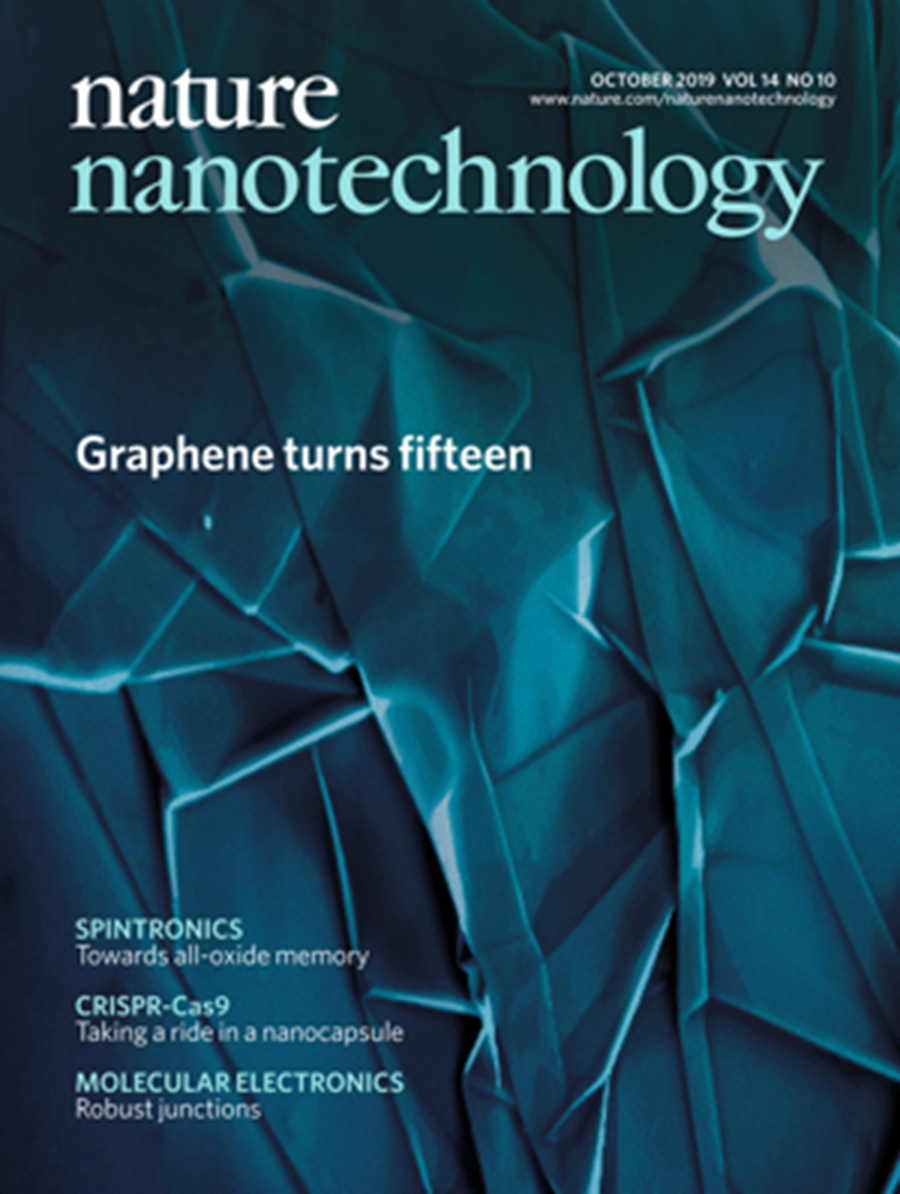Graphene turns 15 on track to deliver on its promises
In a special Nature Nanotechnology issue celebrating 15 years since the Nobel Prize-winning “ground-breaking experiments on graphene,” the Graphene Flagship analyses the current graphene landscape and market forecast for graphene over the following decade.
Graphene is light, flexible, conductive, and one of the strongest materials in the world. And it is right on track to deliver on its promises – the Graphene Flagship is confident many applications will be unveiled in the next decade. In a special Nature Nanotechnology issue, celebrating 15 years since the Nobel Prize-winning "ground-breaking experiments on graphene," the Graphene Flagship analysed the current graphene landscape and market forecast for graphene over the following decade.
In a world dominated by the immediacy of social media and digital technologies, it is hard to take a step back and think about how long materials take to develop. The silicon transistor, at the heart of all our beloved gadgets, was engineered in 1958. However, scientists had known of silicon for over 120 years – it was discovered in 1824. Although expecting broad market penetration for graphene today would not be realistic, the truth is that one can already find graphene-enabled products on the market.
A number of these commercial applications have been enabled by the Graphene Flagship, a project funded by the European Commission that kicked off in 2013. Bringing together nearly 150 partners from 23 countries, it created the perfect breeding ground for innovation, which could not emerge without an intricate web of collaborations between academics, researchers, and industries. The Graphene Flagship also acted as inspiration for many programmes on graphene and related layered materials in many other countries.
The Graphene Flagship expects short-term applications in the materials sector, with graphene-enabled inks, composites, and coatings, for applications ranging from food packaging to textiles and sports goods. In the mid-term, graphene could be crucial for the energy sector, and market analyses agree on a high potential for graphene-enabled batteries and supercapacitors. With the first graphene-enabled solar farm to be installed in Crete next year, the Graphene Flagship will showcase how graphene can enable more sustainable energy generation, in line with Europe's commitment to renewable energies.
A host of applications for graphene are expected to hit the market 10 to 15 years from now. These are related to (opto)electronics, where graphene can deliver performances orders of magnitude higher than current technologies. The developments in this area could trigger the next-generation of (opto)electronic devices, bringing the 'more-than-Moore' devices to reality.
To secure its most valuable strength – bridging the gap between basic and applied research – the Graphene Flagship has also announced the creation of the first graphene foundry. With a budget of almost €20 million over four years, this experimental pilot line will pave the way towards commercially competitive graphene products, such as transceivers, photodetectors, and sensors. The Graphene Flagship foundry will also develop a process design kit: a set of 'instructions' to support product tape-out and guarantee that the finalised designs are high-quality and consistent. The foundry will be accessible by academia and industry stakeholders worldwide.
Kari Hjelt, Graphene Flagship Head of Innovation stated: "We are now seeing the first wave of graphene-enabled products on the market. The commercialisation activities of graphene are moving from materials development towards components and system level integration. In the future we will see a growing number of high-value add products for various application domains."
Thomas Reiss, Graphene Flagship Work Package Leader for Industrialisation, adds: "Key factors facilitating the further commercialisation of graphene comprise establishing innovation ecosystems and providing holistic innovation support. This includes elaborating innovation roadmaps and creating trust and confidence in graphene among industry by trusted validation and standardization services."
Andrea C. Ferrari, Graphene Flagship Science and Technology Officer and Chair of its Management Panel, concludes: "Graphene and related materials are progressing towards commercialization at the expected pace. The Graphene Flagship is not about hype, but about concrete and tangible results and progress. The Flagship Foundry will strengthen the EU position as world leader and pioneer in graphene technology and facilitate incorporation of graphene devices in various industries."
References
"Graphene on track to deliver on its promises." T. Reiss, K. Hjelt, A.C. Ferrari. Nature Nanotechnology 2019, 14, 907-910 (DOI: 10.1038/s41565-019-0557-0).
"The lab-to-fab journey of 2D materials." S. Milana. Nature Nanotechnology 2019, 14, 919-921 (DOI: 10.1038/s41565-019-0554-3).

Cover of this month's Nature Nanotechnology issue. Image: Irina Grigorieva, The University of Manchester. Cover Design: Bethany Vukomanovic © Springer Nature.




